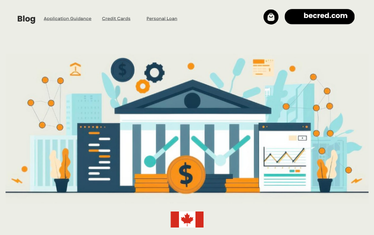Certificate of Deposits (CDs) For Beginners
Certificate of Deposits (CDs) are a powerful yet often overlooked savings tool that can help individuals earn stable interest over a fixed period. Ideal for goals ranging from education expenses and home down payments to dream vacations, CDs offer a low-risk investment option backed by the full faith and credit of the U.S. government. This comprehensive guide breaks down everything you need to know about CDs—from how they work, the different types available, their benefits, to smart strategies like CD ladders that maximize returns while maintaining liquidity.
What Are Certificate of Deposits (CDs)?
Contrary to the old-school music CDs, financial CDs are time-bound deposit products offered by banks, credit unions, and brokerage firms. When you invest in a CD, you agree to lend your money to the institution for a fixed period, known as the maturity. In return, you receive interest on your principal at a specified rate.
CDs come with various term lengths:
- Short-term CDs: 1 to 6 months
- Medium-term CDs: 6 months to 2 years
- Long-term CDs: 2 to 5 years, with some extending up to 10 years
Long-term CDs typically offer higher interest rates but require you to lock in your money for a longer time. However, there are strategies like the CD ladder that allow you to benefit from these higher rates without sacrificing access to your funds.
Types of CDs
Understanding the different types of CDs can help you choose the best fit for your financial goals:
- Traditional CDs: Offer a fixed interest rate over a set term.
- No Penalty CDs: Provide flexibility to withdraw your money early without penalty.
- Jumbo CDs: Designed for high-net-worth individuals, these require a minimum deposit of $100,000 or more and offer higher rates.
- Brokered CDs: Available through brokerage firms, these can be purchased either as newly issued CDs (primary market) or traded on the secondary market, offering more flexibility but with some added risk due to price fluctuations.
One of the biggest advantages of CDs is that they are FDIC insured up to $250,000 per institution, ensuring your money is protected.
How Do CDs Work?
When you buy a CD, you are essentially lending your money to a bank for a fixed term at a fixed interest rate. For example, a six-month CD from Western Alliance Bank might offer a 5.23% yield. Some CDs, known as variable rate or flex CDs, have interest rates that fluctuate based on market conditions. For instance, a flex CD from Merchants Bank currently offers a 5.92% APY, with rates linked to a prime rate index minus a margin.
CDs typically advertise their interest as APY (Annual Percentage Yield), which includes the effect of compounding interest over one year. Most banks compound interest daily or monthly. You can usually choose to either let the interest compound within the CD or receive periodic interest payments to a separate account.
At maturity, you have two main options:
- Withdraw your principal plus interest without penalty.
- Opt for an automatic rollover, where your funds are reinvested into a new CD at the prevailing rates.
Keep in mind that interest earned on CDs is taxed as ordinary income, and institutions will typically issue a 1099-INT form if you earn more than $10 in interest.
Benefits of Investing in CDs
CDs come with several advantages that make them an attractive savings vehicle:
- Safety and Security: FDIC insurance protects your investment up to $250,000.
- Guaranteed Returns: Fixed interest rates provide predictable earnings.
- Flexible Terms: Choose terms that match your financial timeline, from months to years.
- Lower Risk: Unlike stocks, CDs carry minimal risk, making them ideal for conservative investors or those nearing retirement.
- Higher Interest Than Savings Accounts: CDs generally offer better rates than traditional savings accounts.
- Compound Interest: Over longer terms, compounding can significantly boost returns.
- No Monthly Fees: CDs typically come without maintenance fees.
- CD Laddering: A smart strategy to balance liquidity and higher yields, which will be explained next.
How to Invest in CDs
You can purchase CDs through banks, credit unions, or brokerage firms. If you already have accounts with these institutions, it’s worth checking their CD offerings first. However, for a broader selection, consider platforms like Raisin, which aggregates CDs and savings products from over 60 insured banks and credit unions, all accessible through one account with no fees.
Raisin offers a user-friendly experience with a minimum deposit of just $1 and provides FDIC coverage up to $10 million across its partner institutions. You can easily compare rates, terms, and types of CDs, including no-penalty and high-yield options, making it a convenient choice for diversifying your CD investments.
Understanding the CD Ladder Strategy
A CD ladder is a method of dividing your investment into multiple CDs with staggered maturity dates to optimize both access to funds and interest earnings. Here’s how it works:
- Divide your total investment into equal parts. For example, $10,000 split into five $2,000 CDs.
- Purchase CDs with different term lengths—for instance, 1-year, 2-year, 3-year, 4-year, and 5-year CDs—each offering progressively higher interest rates.
- When the shortest-term CD matures, reinvest the principal and interest into a new long-term CD (such as a 5-year CD) at the current rate.
- Repeat this process each year as CDs mature, gradually building a portfolio of longer-term CDs earning higher rates.
This approach offers steady income, regular liquidity as CDs mature annually, and the benefit of locking in higher long-term rates over time. However, market conditions can affect the optimal ladder structure. For example, during an inverted yield curve (when short-term rates exceed long-term rates), it may be better to focus on shorter-term CDs for flexibility.
Things to Be Aware Of When Investing in CDs
While CDs are a solid investment choice, it’s important to consider the following risks and limitations:
- Interest Rate Risk: Locking in a low rate means missing out if rates rise later.
- Early Withdrawal Penalties: Withdrawing before maturity often results in losing some or all of the interest earned.
- Inflation Risk: Fixed rates may not keep pace with inflation, eroding purchasing power.
- Limited Earnings Potential: CDs generally yield less than stocks or index funds over the long term.
- Liquidity Constraints: Funds are tied up until maturity unless you accept penalties.
- Automatic Renewal Risks: Automatic rollovers may lock your money into less favorable rates if not monitored.
- Minimum Deposit Requirements: Jumbo CDs require large deposits, though platforms like Raisin offer low minimums.
- Tax Implications: Interest is taxed as ordinary income, affecting your net returns.
Who Should Consider Investing in CDs?
CDs are an excellent option for certain financial situations:
- Short- to Medium-Term Goals: If you plan to make a major purchase like a home down payment within a few years, CDs can preserve your capital while earning guaranteed interest.
- Retirees or Conservative Investors: Those seeking predictable, low-risk income can benefit from CDs as part of a diversified portfolio.
However, CDs may not be suitable for everyone. For example, if you want rapid wealth accumulation, higher-return investments like index funds may be more appropriate. If you need quick access to your funds without penalties, consider no-penalty CDs or high-yield savings accounts instead.
Final Thoughts
Certificates of Deposit remain a reliable and secure way to grow your savings with minimal risk. By understanding the different types of CDs, their benefits, and strategies such as laddering, investors can tailor their approach to fit their financial goals and timelines. Platforms like Raisin make accessing competitive CD rates easy and convenient, even for beginners.
Whether you’re saving for a near-term goal or looking for a safe income stream in retirement, CDs can be a valuable part of your financial toolkit. Just be sure to consider your personal situation, market conditions, and the terms of each CD before committing your funds.
For those interested in exploring CDs further, consider checking out platforms that aggregate multiple offerings in one place, allowing you to shop for the best rates and terms without hassle. Remember, the key to mastering CDs is balancing safety, return, and liquidity according to your unique needs.


